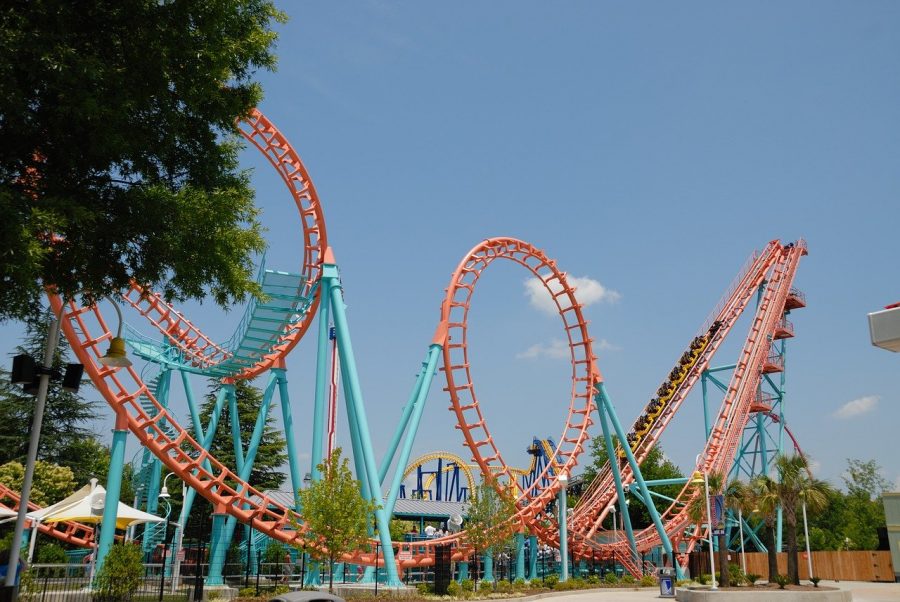Science Behind the Love of Rollercoasters
December 14, 2021
You either love rollercoasters, or you are deathly afraid of them. Or, you’re one of those people who love rollercoasters and the thrill that comes with them, but they do make you a tad bit nervous. Either way, regardless of whether you love them or hate them, you’re not alone. There are many people who suffer from coasterphobia (aka phobia of rollercoasters), and there are many people who just love living life dangerously.
But for those who love rides, what exactly is so fun about the intense and chilling feeling of a rollercoaster that keeps them coming back? What’s the science behind the love of rollercoasters?
Well, the reason some people swear that being on a rollercoaster is the greatest feeling on Earth is because they feel like they are experiencing the “physical sensation of fear” without actually being at risk of danger. This phenomenon is referred to as “benign masochism” and is unique only to humans.
Benign masochism is essentially things humans do to feel fear and emotions of being in danger when they know they will not be hurt in the process. Watching horror/gory films, eating spicy food, smelling stinky things, and even hearing disgusting jokes are common behaviors triggered by benign masochism.
Furthermore, such activities also cause an adrenaline rush, and in the case of a rollercoaster, after getting off the ride (the end of an adventurous activity), people experience high levels of endorphins, which basically produces large amounts of pleasure. Additionally, going on a rollercoaster may trigger cortisol, which is a stress hormone. But this kind of stress is not necessarily bad. In fact, it’s positive stress, which is quite normal to experience when taking part in a thrilling activity.
On top of that, we as mammals like to try “dangerous” things out in safety so that we are ready to act in a similar real-life situation without safety.
However, for people who do not like rollercoasters, there is an explanation too. Dopamine is a hormone provoked by pleasurable activities. People who have lower levels of dopamine tend to stay away from rollercoasters. Likewise, for people with lower levels of dopamine, cortisol may act as a source of negative stress rather than positive stress. Regardless, there is still nothing abnormal about that.
Freshman Annie Jing said “Rollercoasters have always been really scary for me, but I still go on them. After the ride, I feel really proud of myself.”
“I’m not scared of rollercoasters, I just don’t think they’re worth it because it freaks me out,” says Freshman Jocelyn Soo.
So if you were wondering, no, you are not weird for wanting to put yourself through the positive pain of going on a ride with a 500 ft drop. Neither are you weird for wanting to puke your guts out after looking at a ride with a 100 ft drop.
Photographic Courtesy of PIXABAY.COM

